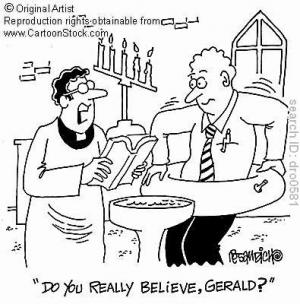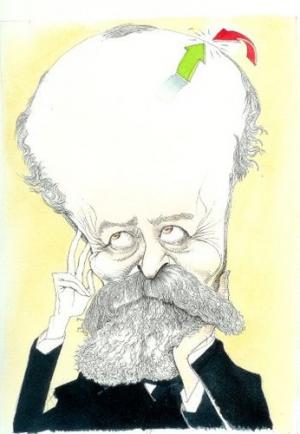Serendip is an independent site partnering with faculty at multiple colleges and universities around the world. Happy exploring!
Notes Towards Day 15: Willingly (Suspending?) Our (Dis??)Belief

Marina's class notes
![]()
I. Using a suspension bridge as the
key image for today's conversation...
You've seen this image before, to
illustrate Alice James's saying
(in scene 6 of Sontag's Alice in Bed),
"My mind is like a rope bridge"--
Used today to evoke both Julia's description
of readers approaching "a text by willingly
suspending their disbelief. This is the reader’s
acceptance of the rules of the fictional world
created by the author in order to better
appreciate the text."
And (much more largely--and positively?) William James'
talking about the activity he calls (not just willingly suspending
disbelief, but) "The Will to Believe"...
II. But! first!
exsoloadsolem and I are dreaming about a field trip to
1) the grave of Mary James Vaux (publisher of AJ's Diary) &
2) the Morris Woods friendship bench
(with its nearby inscription from William James....)
if the weather cooperates, then: on WEDNESDAY?
also for Wednesday, read
"Philosophical Conceptions and Practical Results," an 1898 essay, rpt. C.E., pp. 345-362
looking back for a moment, to
Calamity's portrait of two streams of consciousness, converging....(how'd you do it....?) &
aseidman's confession: I have spent the last several years trying to convince myself
that becoming a creature of habit is a positive thing.

A portrait of William James, our guide
in moving from the study of psychology
into larger philosophical questions about
"how to think"....
appreciate the sequence? moving from the mechanics
of "thinking" to thinking about changing how we act
II. in this process, the absolutely key essay is "The Will to Believe"
(originally an address to the Yale and Brown University Philosophical Clubs, 1896;
let's read it aloud, in turn):
In the midst of our Harvard freethinking and indifference ... I have brought with me to-night something like a sermon on justification by faith ... a defence of our right to adopt a believing attitude in religious matters .... Perhaps your mind will be more open than those with which I have hitherto had to deal.
Let us give the name of hypothesis to anything that may be proposed to our belief .... A live hypothesis is one which appeals as a real possibility .... measured by ... willingness to act .... Practically, that means belief ....
a genuine option ... is of the forced, living, and momentous kind.
for us ... the prestige of the opinions ... lights up our sleeping magazines of faith .... Our faith is faith in someone else's faith ...
Our belief in truth itself ... what is it but a passionate affirmation of desire, in which our social system backs us up?
As a rule we disbelieve all facts and theories for which we have no use ... our non-intellectual nature does influence our convictions ... pure insight and logic ... are not the only things that really do produce our creeds.
Our passional nature ... must decide an option ... whenever it is ... genuine ...
we are all such absolutists by instinct .... Objective evidence and certitude are doubtless very fine ideals to play with, but where on this moonlit and dream-visited planet are they found? ... I live ... by the practical faith that we must go on experiencing and thinking over our experience, for only thus can our opinions grow more true; but to hold any one of them ... as if it never could be reinterpretable or corrigible, I believe to be a tremendously mistaken attitude ....
No concrete test of what is really true has ever been agreed upon .... the intellect ... may have no infallible signal for knowing whether it be truth or no.
There are two ways of looking @ our duty in the matter of opinion .... We must know the truth; and we must avoid error, --these are our first and great commandments as would-be knowers; but they are ... two separable ... materially different laws; and by choosing between them we may ... color ... differently our whole intellectual life .... Our errors are surely not such awfully solemn things. In a world where we are so certain to incur them in spite of all our caution, a certain lightness of heart seems healthier than this excessive nervousness on their behalf.
The attitude of sceptical balance is ... absolutely the wise one .... On every account it is better to ... keep weighing reasons pro et contra with an indifferent hand .... the most useful investigator, because the most sensitive observer, is always he whose eager interest in one side of the question is balanced by an equally keen nervousness lest he become deceived. Science has organized this nervousness into a regular technique, her so-called method of verification .... Let us agree ... that wherever there is no forced option, the dispassionately judicial intellect with no pet hypothesis ... ought to be our ideal ....
[BUT!] can we ... always wait with impunity til the coercive evidence shall have arrived? It seems a priori improbable that the truth should be so nicely adjusted to our needs and powers as that. In the great boarding-house of nature, the cakes and the butter and syrup seldom come out so even and leave the plates so clean. Indeed, we should view them with scientific suspicion if they did.
Moral questions immediately present themselves as questions whose solution cannot wait for sensible proofs .... Science can tell us what exists; but to compare the worths ... of what exists ... we must consult ... our heart .... having moral beliefs ... is decided by our will ....
Do you like me or not? ... depends ... on whether I meet you half-way, am willing ... to show you trust and expectation. The previous faith on my part on your liking's existence is in such cases what makes your liking come. But if I stand aloof .... until I have objective evidence ... ten to one your liking never comes .... the desire for a certain kind of truth here brings about that special truth's existence .... fact acts ... as a claim and creates its own verification .... There are, then, cases where a fact cannot come at all unless a preliminary faith exists in its coming. And where faith in a fact can help create the fact.
religion says essentially two things. First ... that the best things are the more eternal things .... second ... that we are better off even now if we believe her first affirmation to be true .... a rule of thinking which would absolutely prevent me from acknowledging certain kinds of truth if those kinds of truth were really there, would be an irrational rule ....
some of you may still shrink from radically saying with me ... that we have the right to believe at our own risk any hypothesis that is live enough to tempt our will .... the freedom to believe can only cover living options which the intellect of the individual cannot by itself resolve .... this command that we shall put a stopper on our heart, instinct, and courage, and wait ... til doomsday, or til such time as our intellect and senses working together may have raked in evidence enough ... seems to me the queerest idol ever manufactured in the philosophic cave .... if we are empiricists, if we believe that no bell in us tolls to let us know for certain when truth is in our grasp, then it seems a piece of idle fantasticality to preach so solemnly our duty of waiting for the bell ....
In all important transactions of life we have to take a leap in the dark .... whatever choice we make, we make it at our peril .... We stand on a mountain pass in the midst of whirling snow and blinding mist ... If we stand still we shall be frozen to death. If we take the wrong road we shall be dashed to pieces. We do not certainly know whether there is any right one. What must we do? .... Act for the best, hope for the best, and take what comes ... we cannot meet death better.
![]()
IN JAMES'S TERMS:
WOULD YOU CALL YOURSELF A BELIEVER?
WOULD YOU LIKE TO?
WHAT PREVENTS SUCH BELIEF?
(Consider Isabel Archer, the governess....)
Que Será, Será
 |
 |


